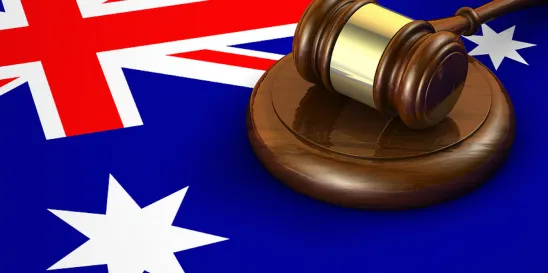The Halal Certification Authority Pty Ltd (HCA) is a for-profit company that provides certification services to third parties. It is the owner of the following trade mark registered for, issuing halal certification to businesses and individuals for goods and services if religious and technical requirements are met:
Flujo Sanguineo Holdings Pty Limited (Flujo) is a company responsible for natural sweetener brands “Natvia” and “Raw Earth”. Flujo’s products had been certified by the HCA as halal, and as such, it paid for the authorisation to use the HCA badge on its packaging. However, Flujo ceased paying to use the HCA Badge yet continued to display it on its products.
First Instance
HCA commenced proceedings against Flujo for infringement of the registered HCA Badge trade mark as well as passing off and misleading and deceptive conduct. Flujo counterclaimed that the registration of the HCA Badge should be cancelled.
At first instance, the primary judge found that Flujo had used the HCA Badge neither as a trade mark nor in respect of goods or services similar to those for which the HCA Badge is registered. The Federal Court also agreed with Flujo’s submission that registration of the HCA Badge be cancelled because it lacked distinctiveness and was likely to deceive or cause confusion.
HCA appealed the Federal Court’s decision to the Full Court.
The Full Court’s Decision
The Full Court of the Federal Court upheld the primary judge’s decision in all but one regard.
The Full Court found that the primary judge had erred on the question of whether Flujo had used the HCA Badge as a trade mark. At first instance, the primary judge considered that the small size of the mark, its placement at the bottom of the side of the boxes and the prominent “Natvia” and “Raw Earth” marks all contributed to a finding that Flujo was not using the HCA Badge as a trade mark. The Full Court rejected this reasoning, finding that Flujo’s use of the mark on its goods indicated both a) that the goods were halal; and b) that HCA had judged the goods to be halal. The Full Court found that the primary judge had erred in only considering the first function of the mark and not giving due weight to the fact that it indicated a connection with HCA. The size and positioning of the mark was also found not to preclude it from being used as a trade mark.
The Full Court also upheld the primary judge’s decision to cancel registration of the HCA Mark, again because it lacked distinctiveness and because it was likely to cause confusion. With regard to distinctiveness, the HCA Badge was found to contain entirely descriptive words in English plus the Arabic script for “halal”. Although words in foreign languages or scripts are typically considered to be adapted to distinguish, the Full Court found that the relevant consumer to whom the mark was directed – those who only eat halal food – were likely to recognise the Arabic word for “halal”.
With regard to deceptiveness, the Full Court found that the HCA Badge implied that HCA was an official, authoritative body for halal certification when this was not the case. The HCA’s conduct in not including the “Pty Ltd” element of its corporate name in the HCA Badge contributed to the risk of confusion because it made HCA appear to be a government-approved authority, rather than a for-profit company.
Takeaways
On the question of infringement, this case emphasises the importance in correctly filing trade marks and to properly specify the goods and services to which it is to be applied. If the HCA Badge had claimed goods rather than certification services, HCA may have been successful in its trade mark infringement claim. But it appears unlikely that the HCA Badge would have remained enforceable as a trade mark given the Full Court’s findings on cancellation.
Nevertheless, the case illustrates some of the limitations of registration of trade marks where the purpose of a sign is not to indicate trade source but to distinguish goods or services that have some kind of specified characteristic and meeting the certifier’s criteria. In these cases, it may be more appropriate to register the sign as a certification mark rather than a trade mark.
This case also continues the recent reversal in courts’ disposition regarding “secondary” trade marks. Following Triangl,1 courts had seemed less and less willing to accept that consumers can readily identify 2 different trade marks on the same product. This decision and that in SelfCare2 reverse this trend and make clear that multiple signs on products can both act as trade marks, even where the secondary mark is obscurely placed.





 />i
/>i
